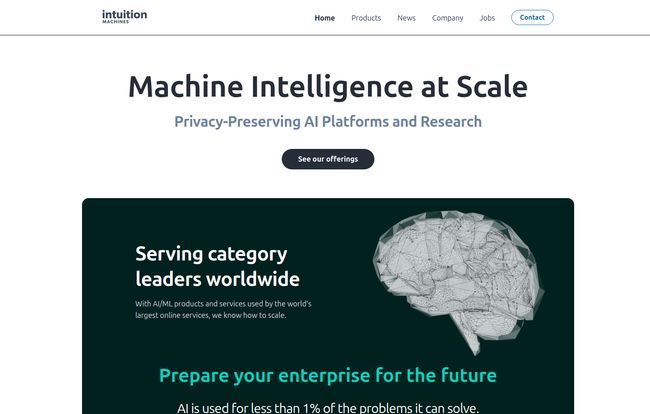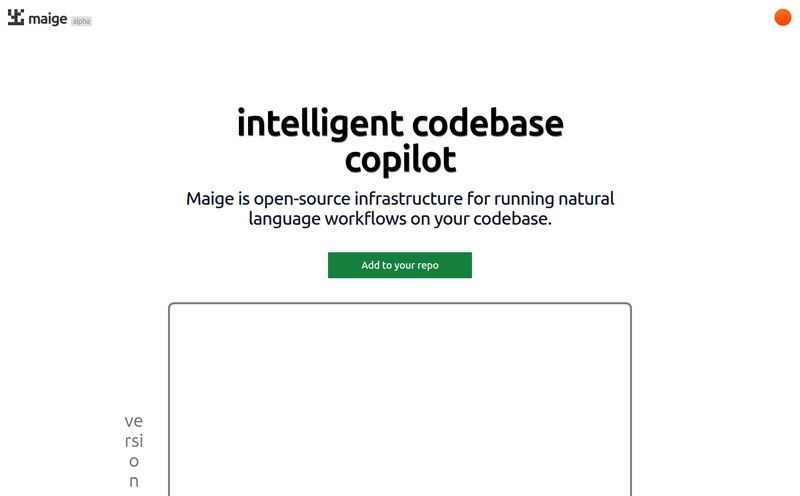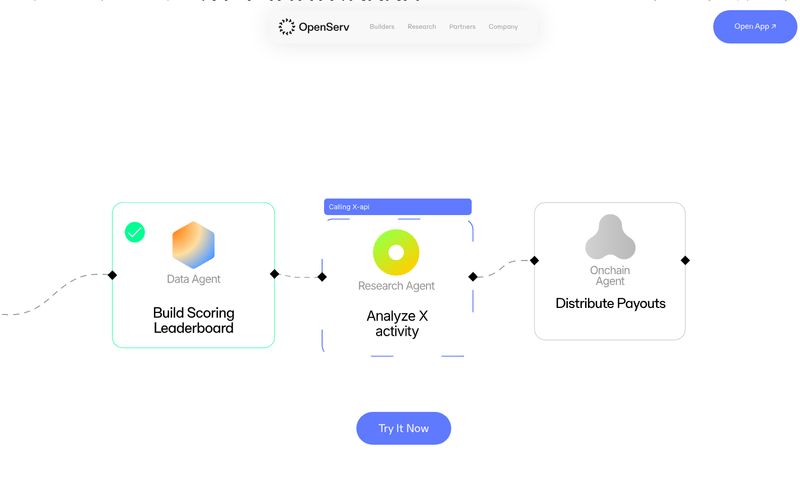If you've spent any time in the digital trenches—managing websites, running ad campaigns, or just trying to keep a semblance of clean data—you've fought the bot war. It’s a relentless, soul-sucking grind. You set up filters, you block IP ranges, and you inevitably slap a CAPTCHA on your forms, hoping for the best. For years, the default choice has been Google's reCAPTCHA, a tool so ubiquitous it's practically part of the internet's furniture.
But what if the furniture is secretly listening? And what if there's a better way?
I've been hearing more and more buzz about a company called Intuition Machines, and not just because they're the architects behind hCaptcha, the most visible privacy-focused alternative to Google's offering. They’re playing a much bigger game. They recently made a statement that stuck with me:
AI is used for less than 1% of the problems it can solve. Adoption is accelerating, and we can help.
That’s a big claim. It positions them not just as a tool provider, but as a guide in a new, complex frontier. So, I did what any self-respecting SEO nerd would do. I rolled up my sleeves and took a deep dive into what they're really all about. And what I found is… well, it’s pretty impressive.
So, Who Exactly Are Intuition Machines?
First off, this isn't some fly-by-night startup with a slick landing page and a dream. Intuition Machines is a serious research-driven organization that turns high-level machine learning concepts into tangible, scalable platforms. Think of them less as a simple software company and more as the quiet engine builders for some of the biggest Ferraris on the internet. Their tech is already used by massive online services, protecting literally hundreds of millions of people from the darker side of the web.
Their whole philosophy is built on a foundation of privacy-preserving AI. This is their North Star. In an era where data privacy isn't just a talking point but a legal minefield (shoutout to GDPR and CCPA), this focus is not just nice to have; it's critical. They’re building tools to solve hard problems—like account takeovers and purchase fraud—without needing to hoover up every last bit of user data to do it.
It’s a fundamentally different approach than the one we've grown accustomed to, where we often trade privacy for convenience or security. Intuition Machines argues we can, and should, have both.
The Two Pillars of Their Platform
When you look at their offerings, it really boils down to two core products that work in tandem. One is the famous face, and the other is the powerful brain behind the operation.
hCaptcha Security Suite: The CAPTCHA You Might Actually Like
This is the one you’ve probably seen. hCaptcha is their enterprise-grade bot mitigation platform. It’s the direct answer to reCAPTCHA, built from the ground up to respect user privacy. I’ve implemented it on client sites struggling with spam submissions, and the immediate appeal is that you’re not feeding the Google ad machine with every user interaction. The data labeling tasks that users perform actually help other AI companies, creating a more distributed and, frankly, equitable ecosystem.
But it's more than just a philosophical win. It’s designed to stop sophisticated threats, from credential stuffing and account takeovers to content abuse and purchase fraud. It's security that does its job without being overly creepy. A real breath of fresh air.

Visit Intuition Machines
The IM Perception Platform: The Brains of the Operation
This is where things get really interesting for the data geeks among us. The IM Perception Platform is the engine that powers everything else. It’s a full-cycle machine learning platform that, in their words, "automates the full train-deploy-improve cycle."
What does that actually mean? It means their models aren't static. They don't just build a model, release it, and call it a day. The platform is built on principles like Active Learning and Scaled Supervision. Think of it like this: an AI model that’s smart enough to know when it's confused. When it encounters a new or ambiguous threat, it can flag it for review, learn from the outcome, and instantly become smarter across the entire network. It’s a living, breathing security system that constantly evolves. A whole different beast from the set-and-forget tools of the past.
The Secret Sauce: Unprecedented Precision with Privacy
Here's a line from their site that just sings: "Our models see what your blinded and blended risk scores cannot."
Anyone who's dealt with generic fraud detection knows exactly what this means. You get a risk score—say, 7.3/10—but no real context. Why is it risky? What triggered the flag? It's a black box. Intuition Machines aims to break that box wide open with what they call "Private Learning."
This is their method for delivering, and I quote, "unparalleled precision with near-zero false positives or negatives." It’s a bold claim, I know. But the logic holds up. By focusing on specific, contextual threat vectors and using their active learning feedback loop, they can create incredibly sharp models that don't need to cast a wide, privacy-invading net. They can identify the actual threat without flagging dozens of legitimate users in the process, which is a massive headache for any customer-facing business.
This approach allows their security to run on the web, inside mobile apps, or entirely server-side, giving a ton of flexibility for implementation.
Who Is This For? And What’s the Catch?
Let's be crystal clear: this is not a tool for your personal blog or a small Shopify store. The power and sophistication of Intuition Machines' platforms are aimed squarely at the enterprise level. We're talking about large online services, financial institutions, e-commerce giants—any organization operating at a scale where automated threats are a constant, significant, and costly problem.
And that brings us to the catch. If you're looking for a simple plugin with a transparent, three-tiered pricing plan, you're in the wrong place. Implementing their solutions will likely require some real technical expertise from your dev or security teams. This isn't a weekend project.
The All-Important Question of Pricing
You've probably noticed I haven't mentioned a price. That's because you won't find one. Clicking around their site for a pricing page leads to a dead end (or, when I checked, a literal 'Page not found', which gave me a bit of a chuckle).
This isn't a flaw; it's a feature of enterprise-level sales. A company with 10 million daily users has vastly different needs than one with 100 million. The pricing is bespoke. It's tailored to your specific usage, scale, and the complexity of the problems you need to solve. To find out what it would cost, you have to do it the old-fashioned way: get in touch with their sales team, get a demo, and get a custom quote. It’s a higher-touch process, but for the level of solution they’re offering, it makes perfect sense.
Your Questions, Answered (The IM FAQ)
Is Intuition Machines just another name for hCaptcha?
Not at all. hCaptcha is one of their flagship products, but Intuition Machines is the parent company and the research powerhouse behind it. They also have the IM Perception Platform, which is their core AI/ML engine for a much broader range of security challenges.
How is hCaptcha really different from Google's reCAPTCHA?
The biggest difference is the philosophy. hCaptcha is built to be a privacy-first solution, meaning it doesn't collect extensive user data to feed an advertising profile. It focuses on effective security while minimizing data harvesting. From my experience, it also offers more direct financial incentives for websites and a more transparent operational model.
Is this platform suitable for a small business?
Honestly, probably not. The platform is designed for large-scale operations facing significant and costly automated threats. For a small business, a solution like the free tier of hCaptcha is a great starting point, but the full IM Perception Platform is likely overkill.
Why is there no public pricing information?
This is standard practice for enterprise-grade, custom solutions. The cost depends entirely on your company's scale, traffic volume, and the specific security features you need. They create a custom package for each client, so a one-size-fits-all price list wouldn't be practical.
What does "privacy-preserving" actually mean in this context?
It means their models are designed to be highly effective without needing to build up and store huge, permanent profiles of personally identifiable information (PII) on every user. They focus on contextual, in-the-moment signals to detect threats, rather than relying on a user's long-term history.
Final Thoughts: A Necessary Evolution
After digging in, I'm left with a clear impression. Intuition Machines isn't just selling a product; they're selling a new philosophy for AI-driven security. It's one built on precision, continuous learning, and a deep, ingrained respect for user privacy. They are tackling the hard, messy problems of the modern internet—bots, fraud, account takeovers—with a scalpel instead of a sledgehammer.
For any large organization feeling the pain of bot traffic or struggling with the ethical and practical limitations of existing tools, they represent a compelling and, dare I say, necessary evolution. For my money, they're a company to watch very, very closely.



